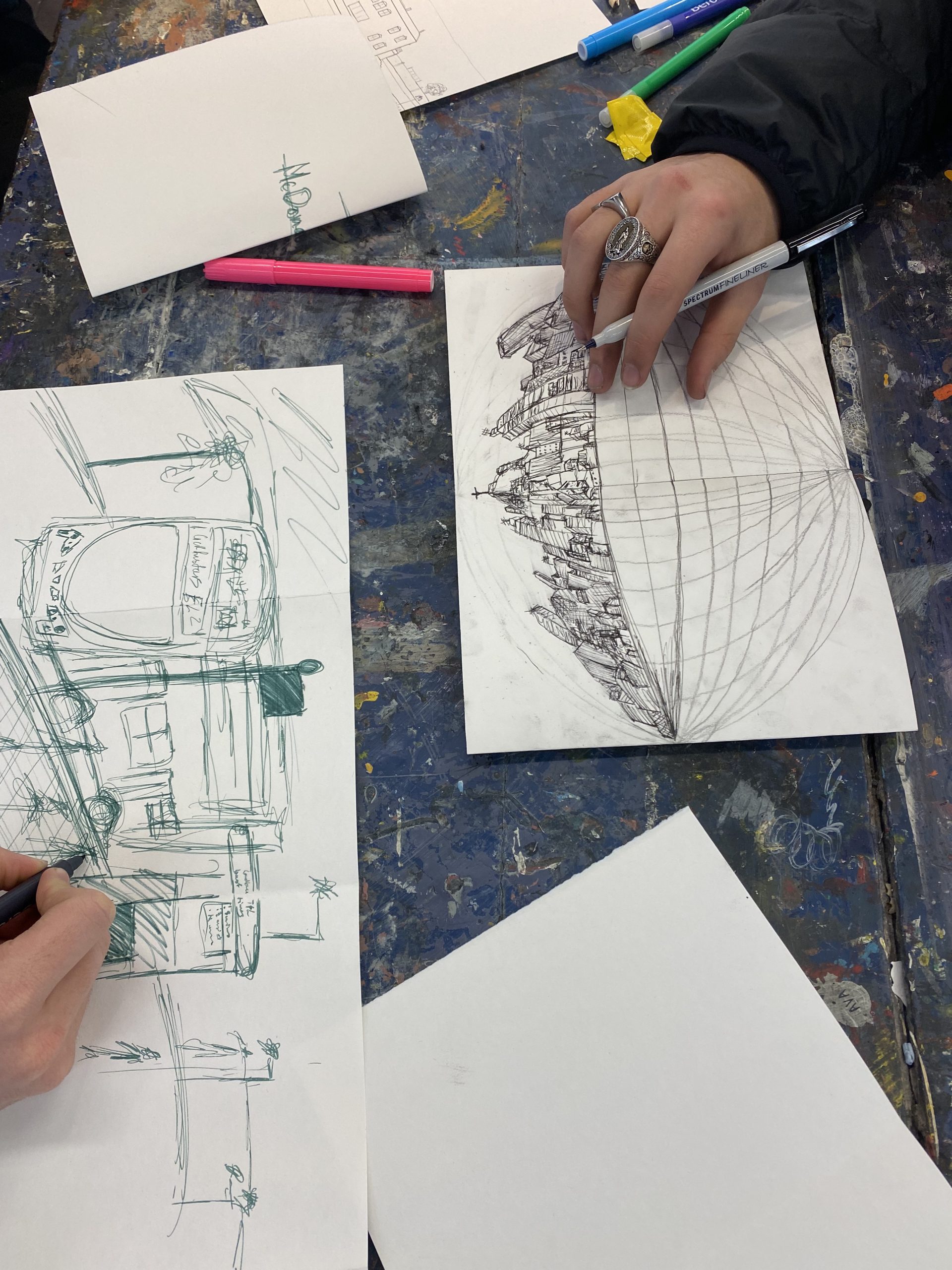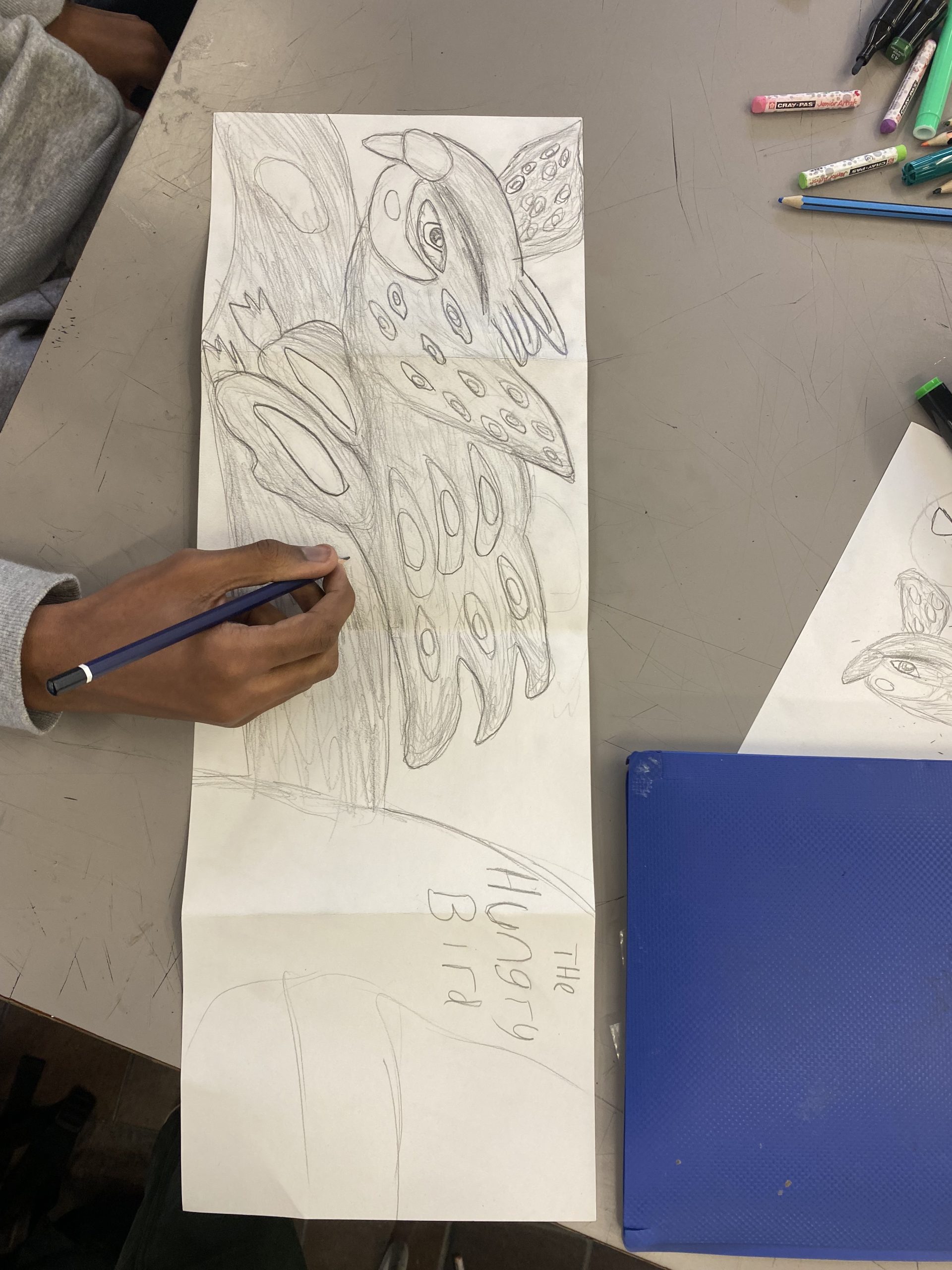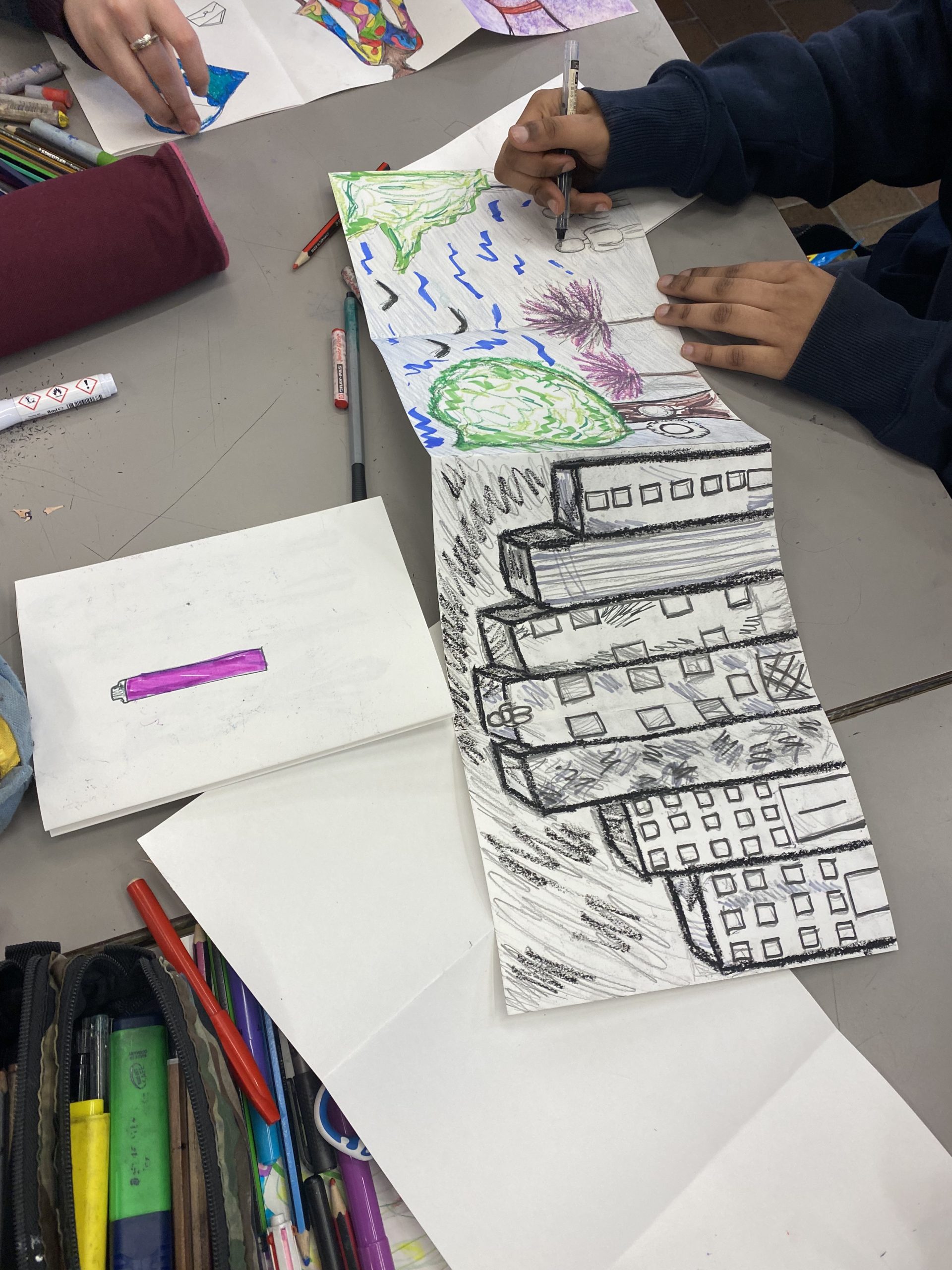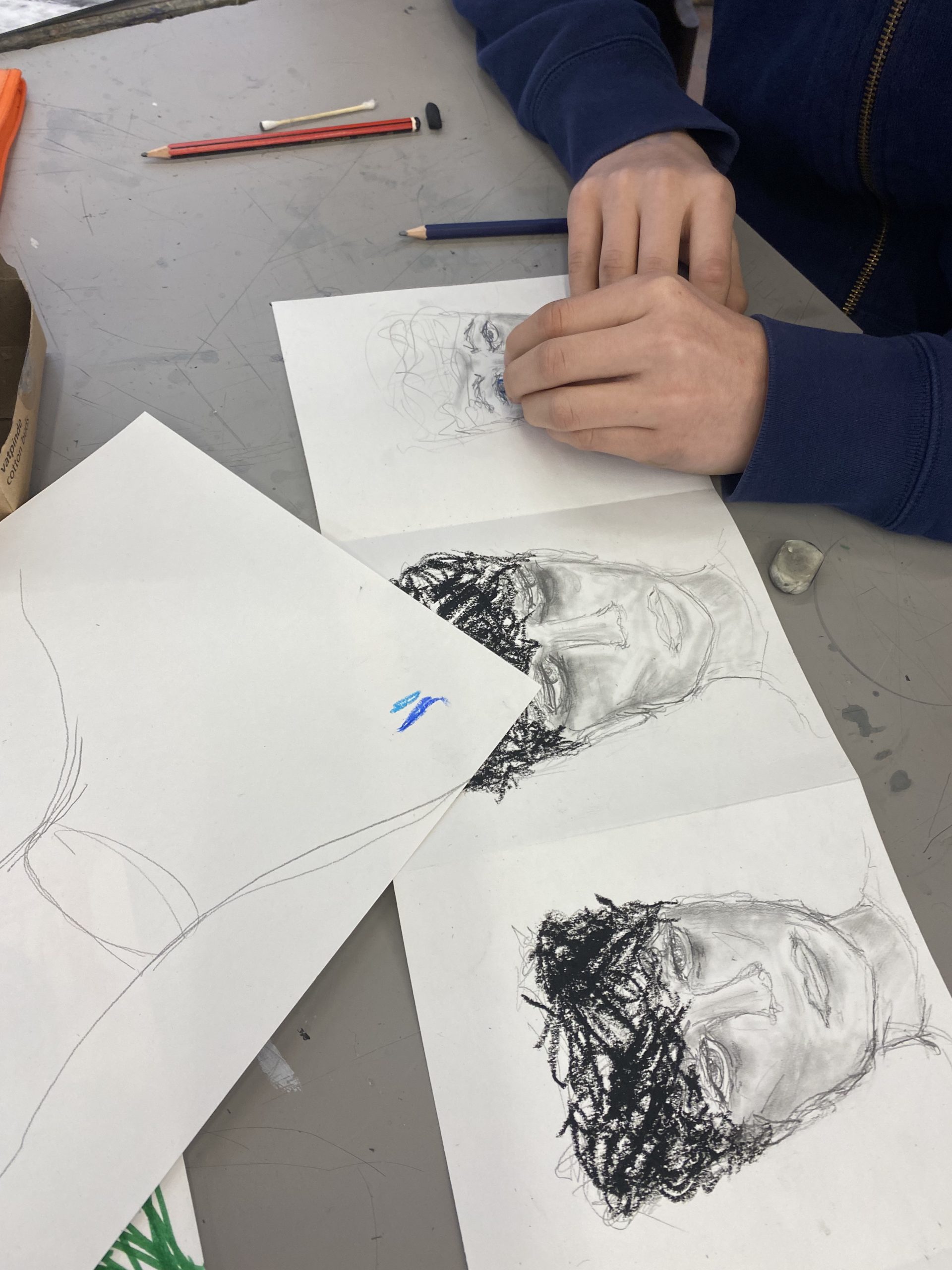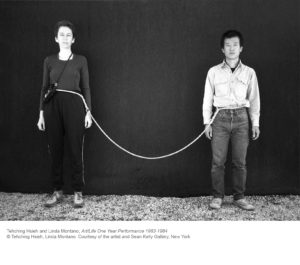Britain may be less united in mourning the death of the Queen than portions of the media would like to suggest, but somehow the epic queue to file past her coffin mattered. The Queue was a sign of national grief, we were told. Its orderly length was peak Britishness. The Queue represented an urge to feel part of history being made. The Queue was a spectacle that was consciously being managed to produce the feeling of a nation united.
People tutted at celebrities who appeared to have jumped the Queue, or praised the levelling effect of a structure that forced David Beckham to wait with all the other ‘subjects’. Other voices pointed out that standing in line for over a day to pay one’s respects to a figurehead whose riches were literally (and strategically) untold, is a deeply ambiguous expression of equality.
Maybe what mattered most about the Queue to see Queen Elizabeth II lying-in-state, though, was its representation of a form of benign waiting. The Queue evoked an atmosphere of sacrifice and service that drew together the monarch and ‘her people’ under a sense of continuity and tradition that seemed to mean something to many. The Queue also looked, and seemed to feel, like a glimpse of a sense of community, half imagined, half real but passed over, where people would ‘look after’ each other. Although queuing is an ordering structure based on very strict hierarchies, people spoke of putting others’ needs – for snacks or clothing or cheery conversation – temporarily ahead of themselves.
We are told, over and again, that our contemporary society of instant access and 24-7 availability means that we no longer know how to wait. In the Queue, however, we had a representation of patience returned to its etymological root of endurance, even suffering. Although religious practices structured by waiting for deliverance and a better world to come have lost much of their force in a more secular society, the Queue to see a figurehead who was, anachronistically, both the Head of State and of the Church of England, echoed with religious and spiritual affects, if not necessarily always with their beliefs.
Of course, the idea that late stage capitalism means that we have lost our ability to wait is grimly contradicted by the reality of contemporary Britain.[1] As NHS waiting lists for elective surgery are at record levels and everyday bits of care like seeing (or speaking to) a GP or dentist become tests of endurance, waiting is a grinding reality for most. People in the gig economy lead working lives structured by frenetic activity and periods of unpaid inactivity, as they wait to service the demands of other people’s clocks.[2] People wait, pedalling on hamster wheels of maddening bureaucracy, for care packages delivered by hollowed-out, contracted-out services that councils are no longer resourced to afford.[3] People wait to find out if they can survive the coming winter.
One thing the Queue made clear is that waiting – the long and painful experience of extended time that does not pass – can be transfigured into a more manageable state by a belief that what we are waiting for will, in the end, be delivered. Waiting is also structured and managed by narratives that shape experiences of suffering into ideas of sacrifice. People can wait and endure in the name of something they understand to have an importance that reaches beyond the themselves. People can wait for the idea of the service of the Queen that her lying-in-state represents. People waited to ‘Protect the NHS’ during the COVID lockdowns of 2020 and 2021 beyond what most behavioural scientists advised was possible at the beginning of the pandemic.[4] And as we learned during lockdown, time that does not pass easily is made more bearable when waiting becomes a shared, collective practice, and the overarching waiting for of a grand project is grounded and made possible through small, everyday caring acts of waiting with others.[5]
One might accurately read the Queue as structure that manages and disciplines the time of a period of mourning, producing the optics of a sense of historical continuity with the institutions and practices the Queen represented. But in terms of what Raymond Williams named ‘structures of feeling’,[6] the culture of the Queue also evoked affects of collectivity, service, and even the ambiguous equality of being a ‘subject’ that reached beyond our current times and the capitalist structures that have penetrated most aspects of British life.
Other feelings are available, of course, despite some of the crude attempts to police them. For many, the British monarch’s death represented a moment when the reality of the violence of Empire must be faced, alongside the extractivism on which capitalism, inextricably bound to colonialism, has fed and through which it continues to flourish. Not all waiting is benign. As historian Dipesh Chakrabarty has described it, colonised nations were forced into the waiting room of history while British interests were served.[7] Martin Luther King also insisted that suggestions that Black Americans should wait a little longer for emancipation would not do when ‘“Wait” has almost always meant “Never”’.[8] As those living on with the consequences of colonisation know all too well, being asked to wait when lives might be preserved by being attended to, or being asked to wait in pain while the resources to alleviate it are being withheld or funnelled elsewhere, is political violence.
Waiting in and for the NHS tells us much about the violence of waiting, but it also tells us about possibilities for something else – possibilities for care.[9] Since its inception, there have been concerns about waiting times in the NHS as they became the explicit responsibility of the State. In the early decades of the NHS, new technologies like appointment systems were introduced to rid GP practices of queues that sometimes stretched well out of the door. Appointment systems, which might also have been used to manage the current Queue, were introduced to take care of the doctors’ time first, and then the patients’, producing more timely access to care and fewer working hours lost.[10]
It was during the 1980s and 90s that long waiting times became a specific marker of failure in the NHS. In the period defined by so-called ‘Targets and Terror’, little was left of the shared post-war idea that there was a benign or necessary form of waiting, say, for spectacles or false teeth, as the new NHS slowly repaired the damage to the nation’s health produced by previous unequal access to treatment.[11] Instead, as the historian of the queue, Joe Moran, has argued, by the 1970s and 1980s queueing was associated with faltering communist regimes. It was no coincidence that the iconic Saatchi and Saatchi poster campaign commissioned by the Conservative Party in 1978 and 1979 used an image of a queue to represent the ruling government’s failed socialism. The queue meant, simply, ‘Labour isn’t working’.[12]
But in the early years of the NHS, for many British citizens waiting in a queue for healthcare was a scene of possibility and change. To be waiting meant that you were now a patient of the NHS who would, in the end, be seen, rather than someone who could never afford to call the doctor out. The queue, whether literal or in the form of a waiting list, signalled a form of care that aimed to manage need rather than to service the ability to pay.[13] And new structures of feeling and identifications slowly emerged in which there was an NHS to wait for, albeit a highly imperfect one, and others to wait with.[14]
This NHS could not have been built and staffed without the labour of British ‘subjects’ from decolonised and decolonising nations.[15] Indeed, the wealth to provide a Welfare State at all in the UK was born over centuries from industries thoroughly dependent on Empire. Nevertheless, being asked to wait and even to queue for the NHS, and the Welfare State more broadly, produced something progressive that is worth holding on to. Waiting did not simply mean ‘never’; instead, it was structured by a collective sense of ‘looking after’ others who had been placed ahead by a service that aimed to allocate care according to need. If a commitment to care and the allocation of resources is to be genuinely underpinned by principles of justice and equality, which would include attending to the injustices of the past and the present and taking care of the future, then the process of ‘looking after’ will require renewed forms of collective action. But it will likely also require new forms of collective waiting, of holding back, perhaps even of queueing. Instead of imagining that waiting must always be reduced through processes of restructuring, privatising, and the delivery of services for profit under the pressures of market forces, perhaps we might use some of the structures of feeling that underpin the capacity to wait to prioritise a collective commitment to care, service, and to justice. That would surely be worth waiting for.
Laura Salisbury and Lisa Baraitser.
18 September, 2022.
[1] Lisa Baraitser, Enduring Time (London: Bloomsbury, 2017).
[2] Sarah Sharma, In the Meantime: Temporality and Cultural Politics (Durham: Duke UP, 2014).
[3] For an account of this dynamic that has only intensified in the last decade, see Ivor Southwood, Non-Stop Inertia (London: Zero Books, 2011).
[4] Ulrike Hahn et al, ‘Why a Group of Behavioural Scientists Penned an Open Letter to the U.K. Government Questioning Its Coronavirus Response’, Behavioural Scientist, 16 March 2020
[5] Lisa Baraitser and Laura Salisbury, ‘Containment, Delay, Mitigation: Waiting and Care in the Time of a Pandemic’, Waiting and Care in Pandemic Times, Wellcome Open Research, 2020.
[6] Raymond Williams, ‘Culture is Ordinary’, (1958), Resources of Hope: Culture, Democracy, Socialism (London: Verso, 1989), pp.
[7] Dipesh Chakrabarty, Provincializing Europe: Postcolonial Thought and Historical Difference (Princeton: Princeton University Press, 2000), p. 8.
[8] Martin Luther King, Why We Can’t Wait, (1964) (London: Penguin, 2018), p. 91.
[9] See Lisa Baraitser and William Brook, ‘Watchful Waiting: Temporalities of crisis and care in the UK National Health Service’, Vulnerability and the Politics of Care: Transdisciplinary Dialogues, ed. Victoria Browne (Oxford: Oxford University Press, 2020).
[10] Martin D Moore, ‘Waiting for the Doctor: Managing Time and Emotion in the British National Health Service, 1948–80’, Twentieth Century British History, 33, 2, (2022), pp. 203–229
[11] With thanks to Martin D Moore for this point.
[12] Joe Moran, ‘Queuing up in Post-War Britain’, Twentieth Century British History, 16, 3, (2005), 283-305.
[13] Martin D Moore, ‘Waiting for the Doctor: Managing Time and Emotion in the British National Health Service’, 1948–80. Twentieth Century British History, 33,2 (2022), pp. 203-229.
[14] See, Mathew Thomson, ‘The NHS and the Public: A Historical Perspective’, https://www.kingsfund.org.uk/blog/2017/10/nhs-and-public-historical-perspective
[15] See Roberta Bivins, ‘Picturing Race in the British National Health Service 1948-1988’, Twentieth Century British History, 28, 1, (2017).


 The history of human obesity is complex. Modern Bariatric services offer medical and surgical interventions towards what proves a challenging task for both patient and clinician – that of encouraging sustained, substantial weight loss over a lifetime. Psychological approaches within bariatric services have a place not only in supporting treatment before and after surgery, but also in those who choose lifestyle modification over surgery. However, the focus of evidence-based approaches in healthcare settings is time-limited; and predictably on weight loss as the main desirable outcome rather than an exploration of the totality of the obese patients’ experience. Today’s Maudsley lecture is an attempt to address this gap by exploring the setting and frame of a Bariatric service from a psychoanalytical perspective. Dr Anuradha Menon who is a liaison psychiatrist and psychoanalyst working in a Bariatric service in Leeds will be in dialogue with Professor Lisa Baraitser, a psychoanalyst who has written widely on feminist theory, motherhood, ethics, care and temporality.
The history of human obesity is complex. Modern Bariatric services offer medical and surgical interventions towards what proves a challenging task for both patient and clinician – that of encouraging sustained, substantial weight loss over a lifetime. Psychological approaches within bariatric services have a place not only in supporting treatment before and after surgery, but also in those who choose lifestyle modification over surgery. However, the focus of evidence-based approaches in healthcare settings is time-limited; and predictably on weight loss as the main desirable outcome rather than an exploration of the totality of the obese patients’ experience. Today’s Maudsley lecture is an attempt to address this gap by exploring the setting and frame of a Bariatric service from a psychoanalytical perspective. Dr Anuradha Menon who is a liaison psychiatrist and psychoanalyst working in a Bariatric service in Leeds will be in dialogue with Professor Lisa Baraitser, a psychoanalyst who has written widely on feminist theory, motherhood, ethics, care and temporality.